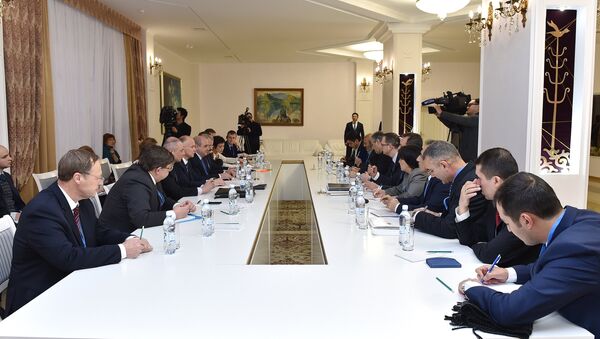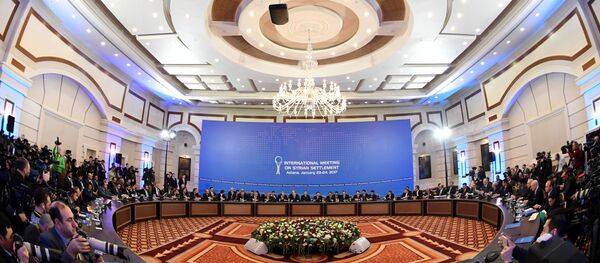"The main result of the work in Astana was the approval by all participants of the provision on a joint group to monitor compliance with the regime of cessation of hostilities, drafted by Russia, Iran and Turkey. It means that the trilateral mechanism was put put on a good, coordinated basis," the source said.
"The tasks for the trilateral joint group, besides ensuring all ceasefire conditions, is separation of terrorist organizations, such as the Islamic State [Daesh] and al-Nusra [Front] (banned in Russia), from the armed opposition, strengthening of confidence-building measures to facilitate the intra-Syrian dialogue under the UN auspices," the source said.
The first round of Astana talks on Syrian crisis settlement brought together the representatives of the Syrian government and the armed opposition groups for the first time in the six years of the Syrian war. As a result of the talks, Russia, Iran and Turkey agreed to establish a trilateral mechanism to monitor the ceasefire that came into effect on December 30, 2016.


